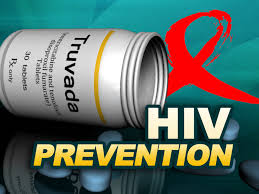Source: phillytrib.com
MILWAUKEE — Kenneth Wade said he has always valued his health. He eats healthy foods. He works out. He drinks plenty of water.
In 2015, when some of his friends told him about a pill called PrEP that could prevent him from getting HIV, he said he felt that learning more about it was a natural and important step to taking good care of himself.
“My sexual health is part of my health,” Wade said. “I asked my doctor my questions about it, and within a week I was on PrEP.”
Wade, 27, is a new brand ambassador for the AIDS Resource Center of Wisconsin’s awareness campaign “Stay PrEP’d Up,” which seeks to educate Milwaukeeans about the benefits of the medication and break down any stigmas about it.
PrEP stands for pre-exposure prophylaxis. It’s a daily prescription pill that can significantly reduce a person’s risk of contracting HIV, a virus that damages a person’s immune system, makes it harder to fight off infections and can lead to AIDS.
When taken consistently, PrEP can reduce someone’s chance of getting HIV through sex by more than 90% and of getting HIV through needles by more than 70%, according to the Centers for Disease Control and Prevention.
After years of substantial declines, rates of HIV diagnoses have stagnated in recent years. Research from the Centers for Disease Control and Prevention suggests that this is because prevention options like PrEP are being severely underutilized.
“PrEP is the fast lane to the end of the AIDS epidemic, as long as we can make sure the people who need access to it are getting it,” said Mike Gifford, president and chief executive officer of the AIDS Resource Center of Wisconsin.
In cities like Milwaukee, there are huge disparities in who is impacted by HIV, along with who accesses PrEP. African American gay and bisexual men are more affected by HIV than any other group, with Latino gay and bisexual men being the second most impacted group, according to the Centers for Disease Control and Prevention.
In 2017, 83% of the 118 new HIV diagnoses in Milwaukee were among people of color, according to the AIDS Resource Center of Wisconsin. Research from the Medical College of Wisconsin indicated that African American men are diagnosed with HIV at rates four times higher than white men.
Meanwhile, the Centers for Disease Control and Prevention reported that only 1.4% of African Americans and 2.5% of Latinos who could have potentially benefited from PrEP were prescribed it.
“If we don’t find ways to increase PrEP use to young people of color, we’re going to continue to see those disparities,” said Katherine Quinn, assistant professor at the Medical College of Wisconsin’s Center for AIDS Intervention Research.
PrEP is a good option for people who are HIV-negative but who face a higher risk of getting HIV, Quinn said. Factors that may heighten a person’s risk of getting HIV are having sex with someone who is HIV-positive, having sex within a social network where HIV is more common, having had sex without condoms, having multiple sexual partners or exchanging sex for drugs, food, money or a place to live, according to the Stay PrEP’d Up website.
Wade said he was initially hesitant about taking PrEP because he wasn’t sure if his insurance would cover it. But after doing some research, he learned that his clinic could make it affordable.
“I have found it very easy for me to get treatment,” Wade said.
Besides possible financial barriers, Wade said he has heard about stereotypes or misunderstandings that have made some of his peers skeptical of PrEP. For example, he said some people thought that the PrEP pill was for people who were HIV-positive, and that people would judge them if they took it.
“It’s really just about being safe and protected,” he said he wants others to know. — (AP)
___
The nonprofit news outlet Milwaukee Neighborhood News Service provided this article to The Associated Press through a collaboration with Institute for Nonprofit News.
